Navigating the intricate world of securities law compliance can feel overwhelming, but it doesn't have to be! Understanding the nuances of regulations and requirements is crucial for businesses and investors alike. From ensuring proper disclosures to maintaining transparency, the landscape is constantly evolving, and staying informed is key. Curious about how to effectively manage these obligations? Let's dive deeper into what you need to know!

Regulatory Compliance Requirements
Securities law compliance involves adherence to regulations set forth by governing bodies like the Securities and Exchange Commission (SEC) in the United States. Companies engaging in public offerings (Initial Public Offerings or IPOs) must file Form S-1, detailing financial statements, risk factors, and management discussions. Substantial penalties may arise from non-compliance, including hefty fines or litigation. Disclosure obligations mandate accurate representation of financial health, ensuring investors receive reliable information while avoiding misleading statements. Insider trading laws prohibit unauthorized trading based on non-public information, safeguarding market integrity. Regular reviews and audits should be conducted to ensure ongoing compliance with evolving regulations, particularly following amendments or new rulings impacting sectors like technology or healthcare. Legal counsel specializing in securities law is essential for navigating complexities in compliance and mitigating risks.
Disclosure Obligations
Securities law compliance mandates stringent adherence to disclosure obligations for public companies, ensuring transparency to investors. The Securities and Exchange Commission (SEC) requires regular filings such as Form 10-K (annual report), Form 10-Q (quarterly report), and Form 8-K (current reports for significant events). These documents must include a comprehensive overview of financial statements (including balance sheets and income statements) as well as management's discussion and analysis (MD&A) highlighting key business developments, risk factors, and management strategies. Material information, which could influence an investor's decision, must be disclosed promptly to prevent insider trading and promote fair market practices, fostering investor confidence in the capital markets.
Material Information and Its Presentation
Material information in securities law refers to any data or fact that could influence an investor's decision regarding the buying or selling of securities (financial instruments representing ownership or creditor relationships). Proper presentation of this information is crucial for maintaining transparency and integrity in the financial markets. Requirements from regulatory bodies such as the U.S. Securities and Exchange Commission (SEC) dictate that companies disclose material information promptly and clearly, ensuring that investors have equal access (while avoiding selective disclosure) to information beyond mere financial statements. Misrepresentation of material information could lead to legal repercussions, market manipulation, or loss of investor trust, impacting stock performance on exchanges like the New York Stock Exchange (NYSE) or NASDAQ. Complying with regulations ensures accountability and fosters a fair trading environment.
Insider Trading Considerations
Insider trading, a critical aspect of securities law compliance, involves the buying or selling of securities based on nonpublic material information. This illegal practice can significantly impact financial markets, leading to unfair advantages for certain investors, and is governed by regulations such as the Securities Exchange Act of 1934 in the United States. Key figures, such as company executives or major shareholders, may possess insights about upcoming earnings reports, mergers, or other significant corporate events. Violations can result in severe penalties, including hefty fines and imprisonment, as seen in landmark cases like the 2001 SEC v. Raj Rajaratnam, which underscored the importance of ethical conduct in financial transactions. Companies are required to implement robust compliance programs, conduct regular training, and establish clear communication channels to ensure that all employees understand the implications of trading on insider information.
Record-keeping and Documentation
Maintaining rigorous record-keeping and documentation practices is essential for compliance with securities laws, such as the Securities Exchange Act of 1934 in the United States. Companies, including publicly traded entities, must create and retain records related to financial transactions, shareholder communications, and insider trading for a minimum of five years. This includes documents like financial statements (annual and quarterly reports), registration statements filed with the SEC, and correspondence related to investor relations. Additionally, accurate logging of internal communications, such as emails and meeting minutes, ensures that companies can demonstrate adherence to regulatory obligations during audits or investigations. Proper documentation simplifies compliance with Sarbanes-Oxley Act requirements, which mandates detailed internal controls and transparency in financial reporting. Comprehensive and well-organized records also facilitate timely responses to regulatory inquiries and ensure that companies maintain their reputation while protecting investor interests.

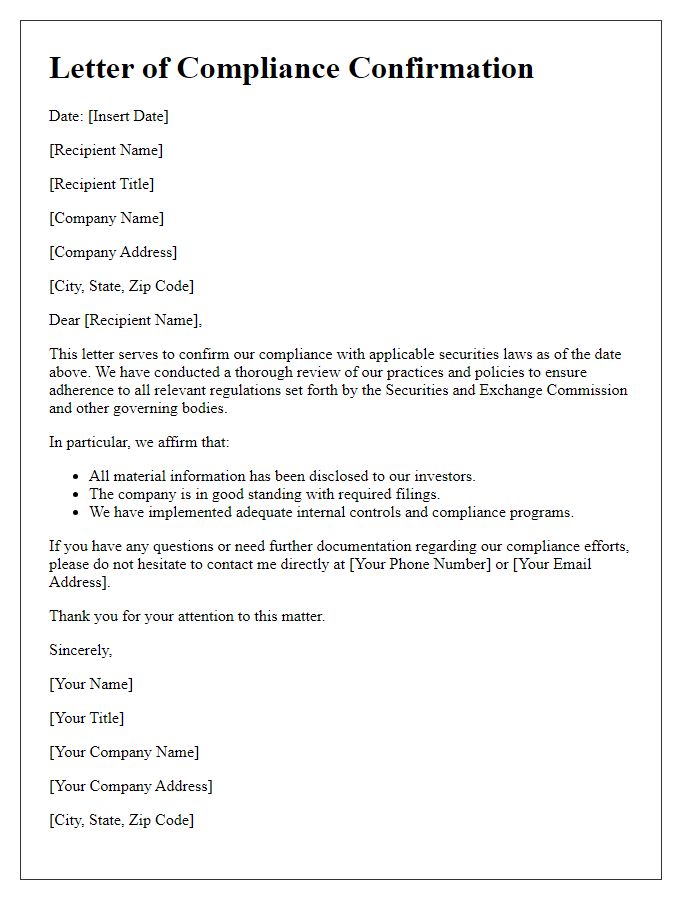
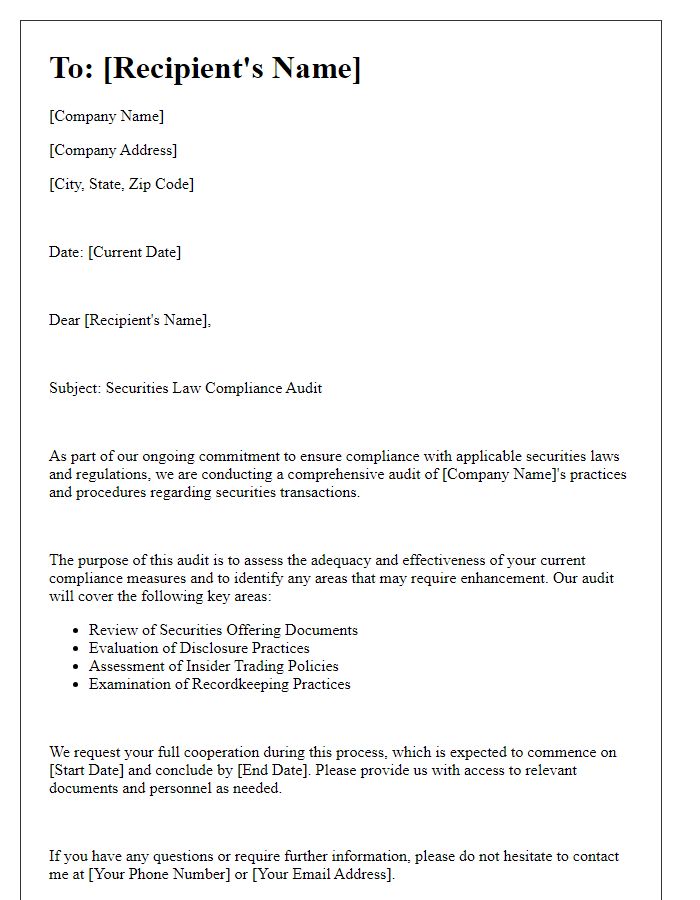
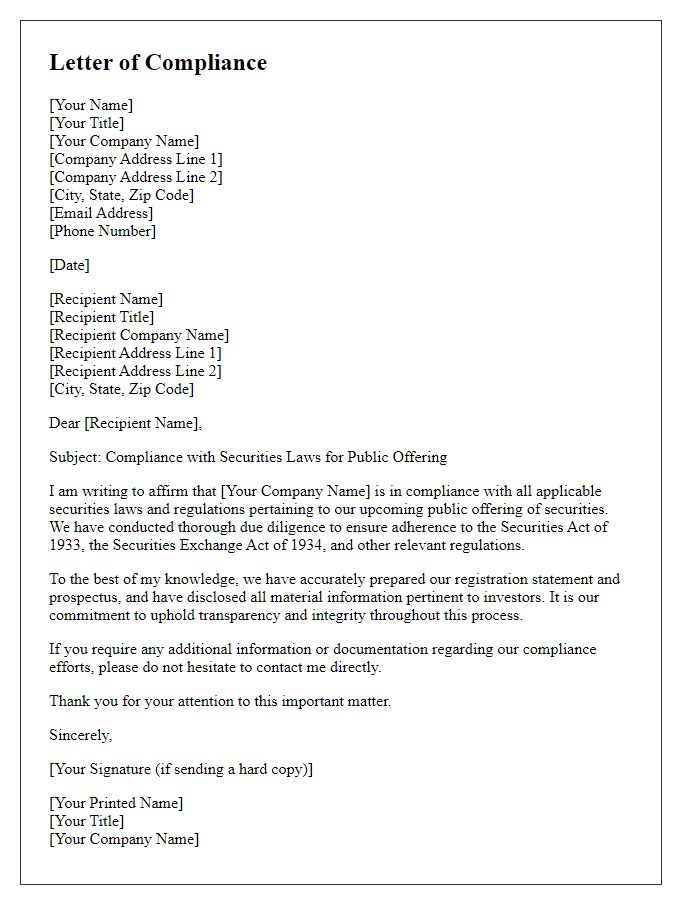
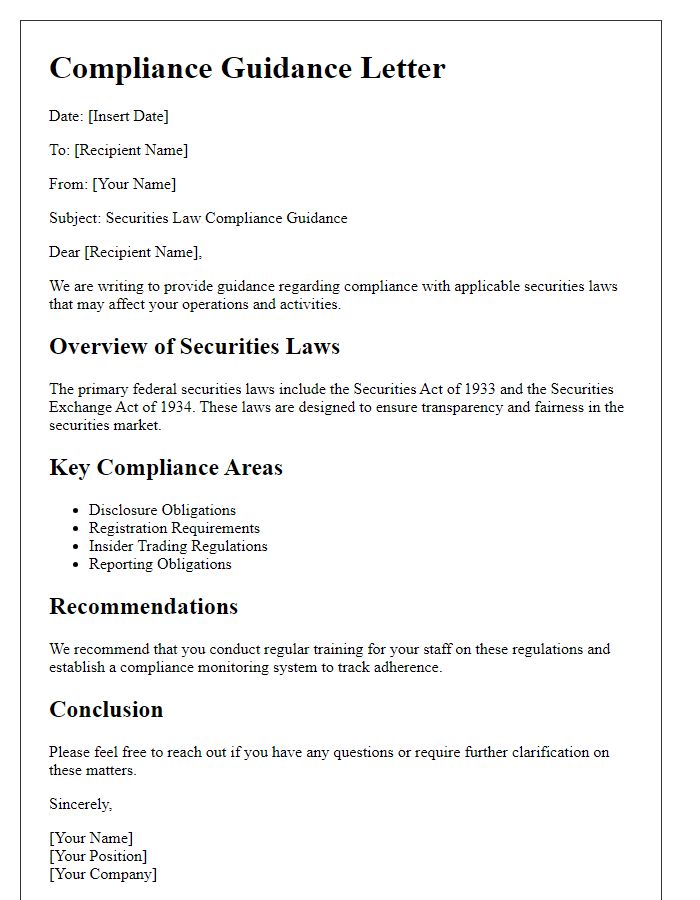
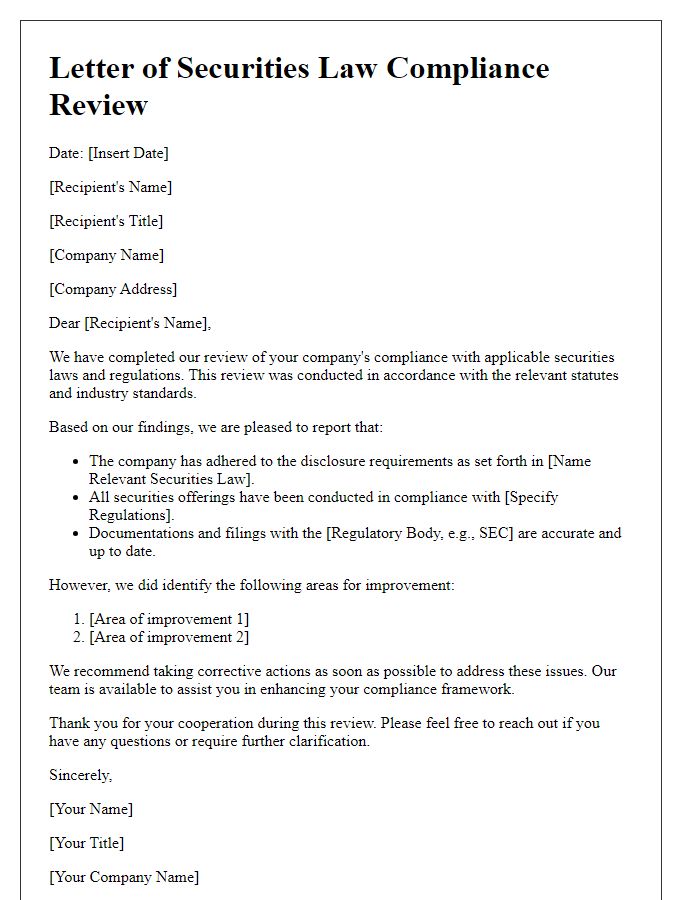
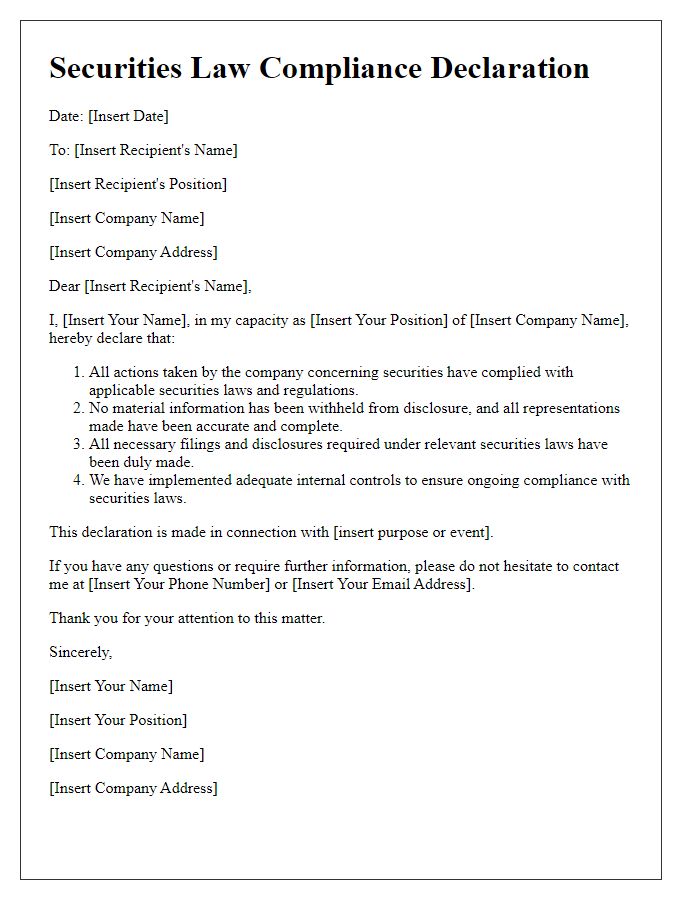
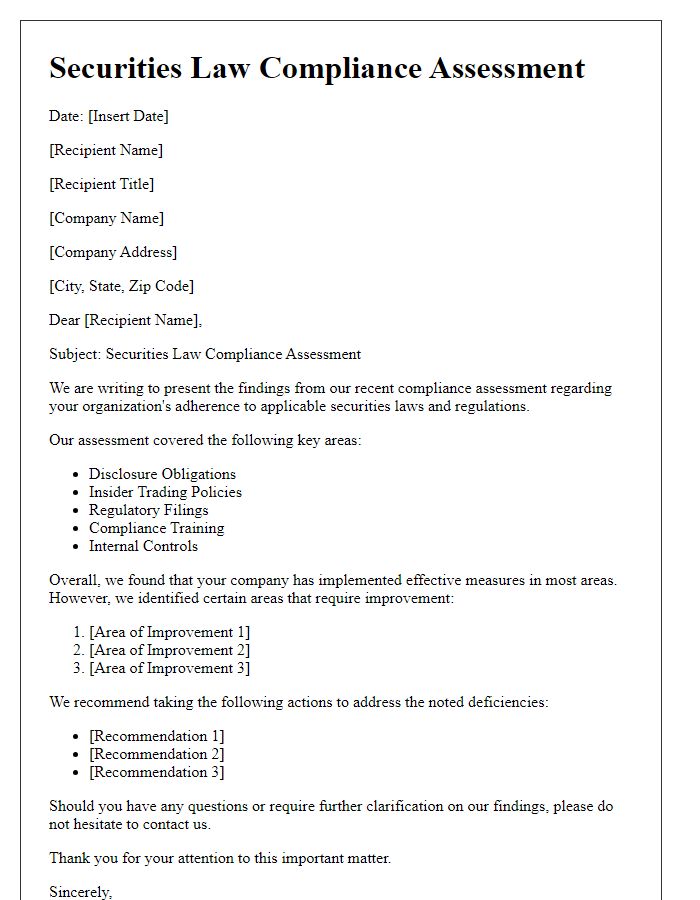
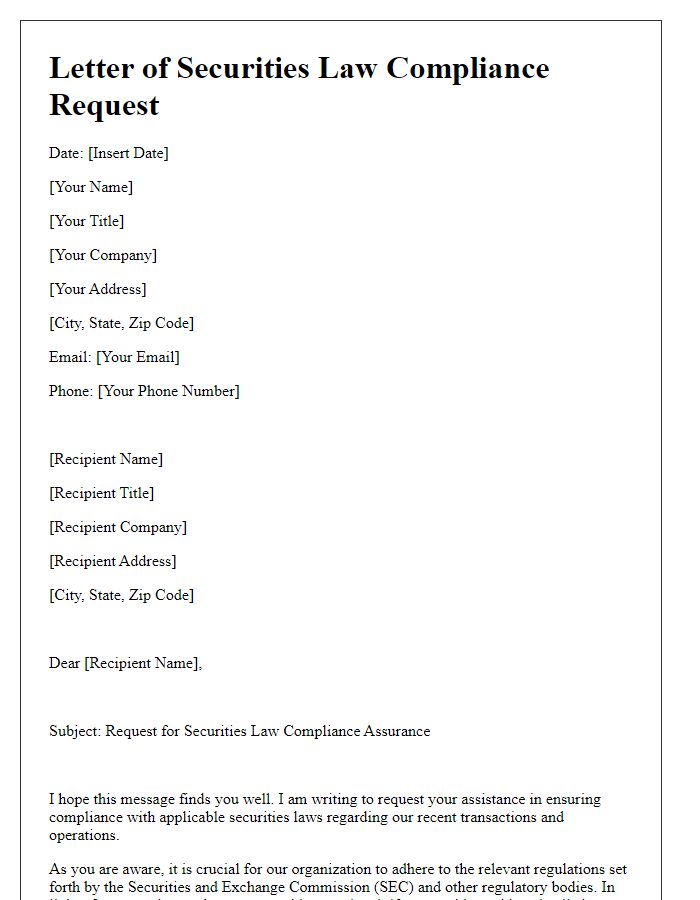
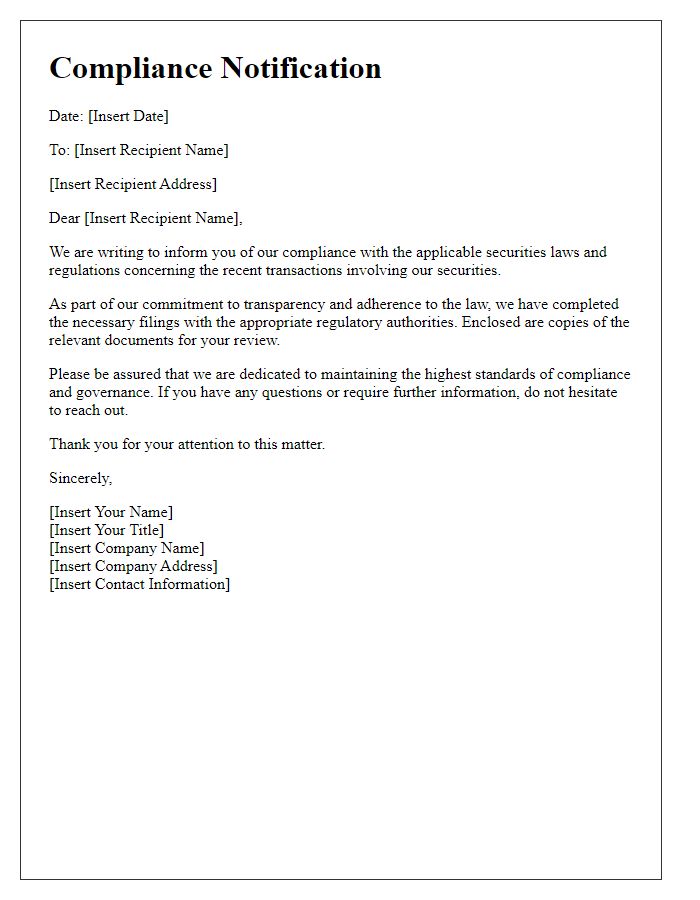
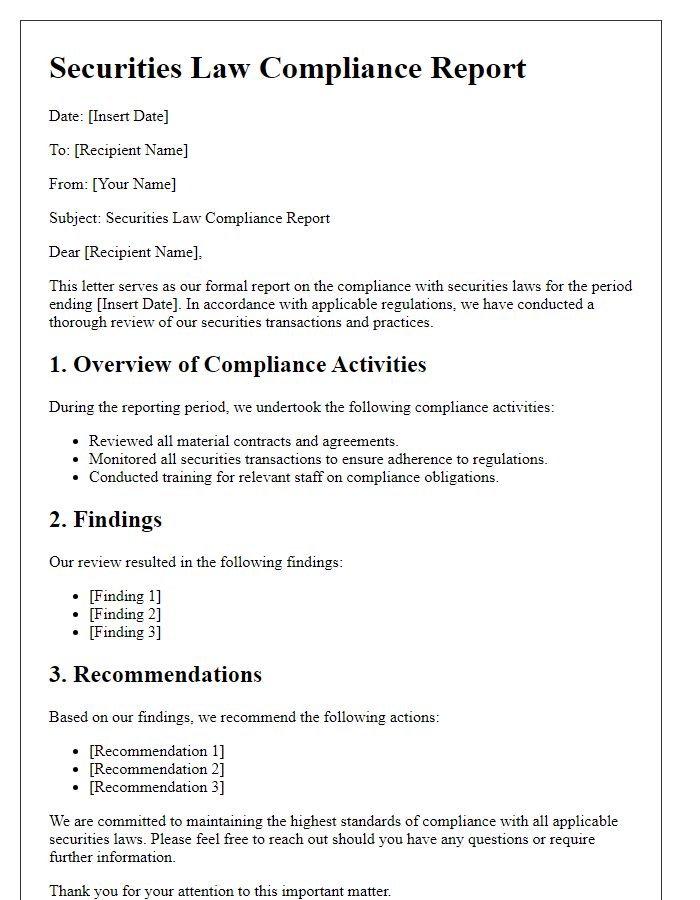

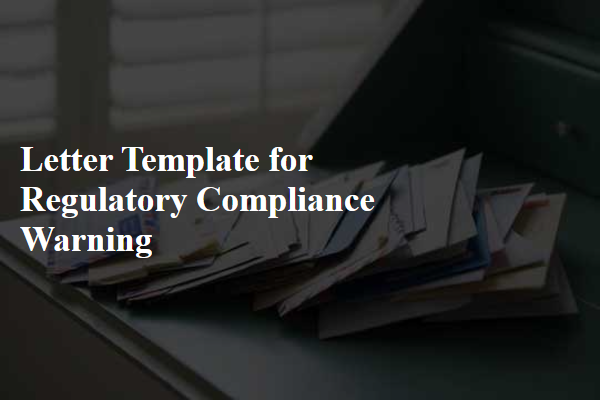
Comments